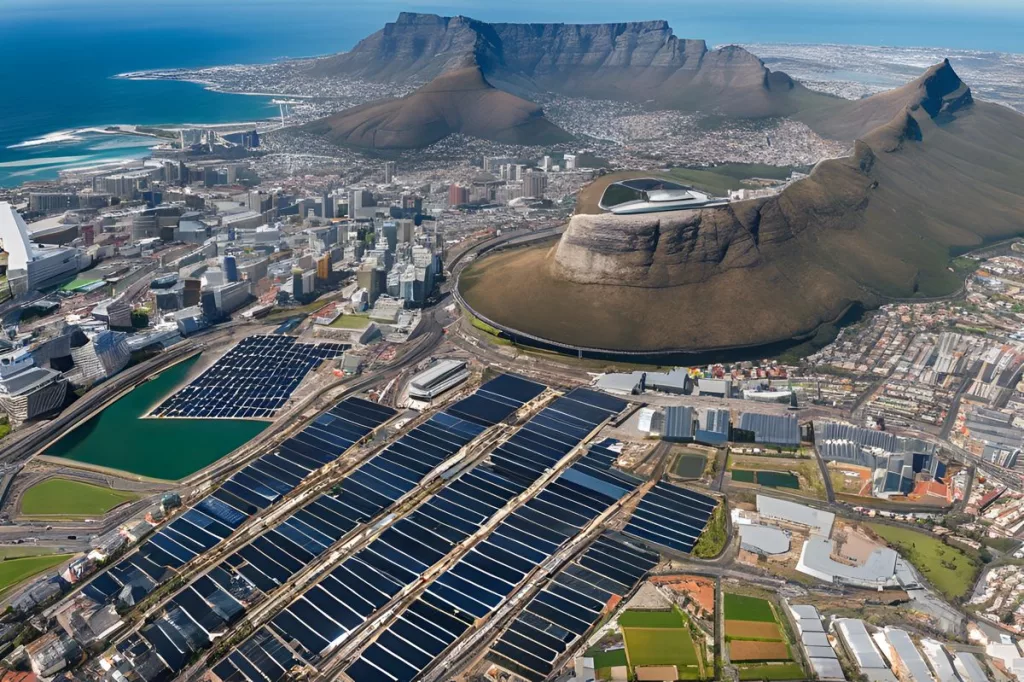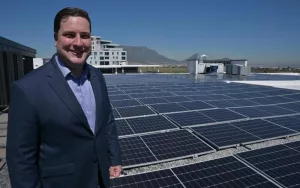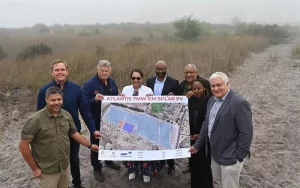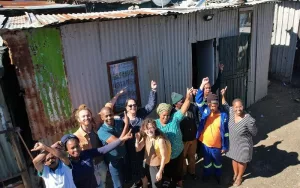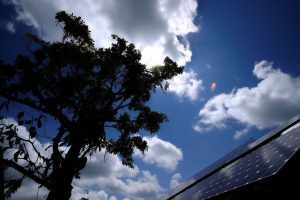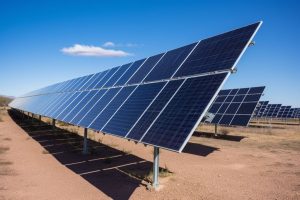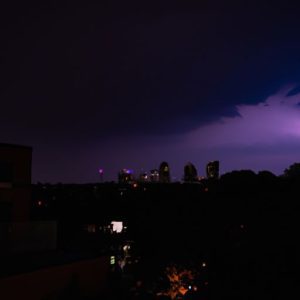Cape Town’s Cash for Power scheme allows households and businesses to trade their surplus solar power back to the city, providing an opportunity to tap into clean and renewable solar energy while also receiving financial rewards. The program has led to collective earnings of over R20.8 million for participants and has spurred interest in solar power utilization. Cape Town’s commitment to renewable energy and sustainable practices is setting a standard for other cities throughout the continent.
Cape Town’s innovative “Cash for Power” program incentivizes solar power generation by buying leftover solar PV power from smallscale producers and providing rewards, making it an attractive opportunity for property owners. The program’s success is evident with over 1,500 power sellers earning over R30.8m. The city’s vision is to acquire as much solar power as households and businesses can generate, promoting sustainable energy solutions and a green economy. The application process has been streamlined with a new online portal and a bidirectional meter is set to be introduced.
Cape Town is taking a bold step towards energy sustainability with its flagship Atlantis Solar PV plant. The 7 MW solar facility, owned and managed by the city, is set to begin construction in August 2024 and will be a beacon of green energy. The Lesedi Technoserve Consortium is handling the project’s engineering, procurement, and construction, and the plant is expected to directly supply the city’s electrical network with the 7 MW of electricity it generates. This largescale renewable energy endeavor is also expected to promote job creation and contribute towards Cape Town’s netzero carbon emissions goal.
Solarpowered illumination systems are being used to light up marginalized communities in Cape Town, providing safety, security, improved quality of life, prolonged working hours for local businesses, educational opportunities, ecological benefits, lessened fire hazards, and improved respiratory health. The initiative is part of the City’s latest Urban Energy Poverty Alleviation Programme and is being explored in areas where traditional electrification methods are not feasible. The potential of solar power is immense, and the City’s dedication to this mission is apparent in its combined approach with grassroots experts and partners.
South Africa struggles to meet its energy demands, resulting in socioeconomic hardships, especially for vulnerable groups. Nevertheless, the government has been working with international partners to find solutions. One such effort is the recent handover of a 13,650 kW solar power system and mobile library by Minister of Social Development, Ms Lindiwe Zulu.
As the world faces an energy crisis with traditional resources such as coal, oil, and gas becoming unreliable, countries worldwide are racing to invest in renewable energy, especially solar power. Solar energy has emerged as the thirdlargest renewable energy source, following wind and hydropower, due to its economic feasibility and abundant availability. Let’s dive into the solar power race and explore the top three countries based on installed capacity, along with assessing South Africa’s progress in this area.
As blackouts become more frequent and loadshedding reaches stage 6, finding reliable alternative sources of energy has become increasingly important for households. This article explores different financing options available to those considering investing in alternative energy solutions, such as solar power systems and inverters.
South Africa’s energy sector has seen a significant challenge in recent years. Eskom, the country’s leading power utility, has struggled to keep up with the growing electricity demand. The result has been frequent power outages, or load shedding, which have disrupted businesses and homes. The reasons for this crisis are complex, ranging from aging infrastructure to corruption allegations. In this article, we will explore the causes of the electricity crisis in South Africa, its impact on society, and the measures being taken to address the problem.

